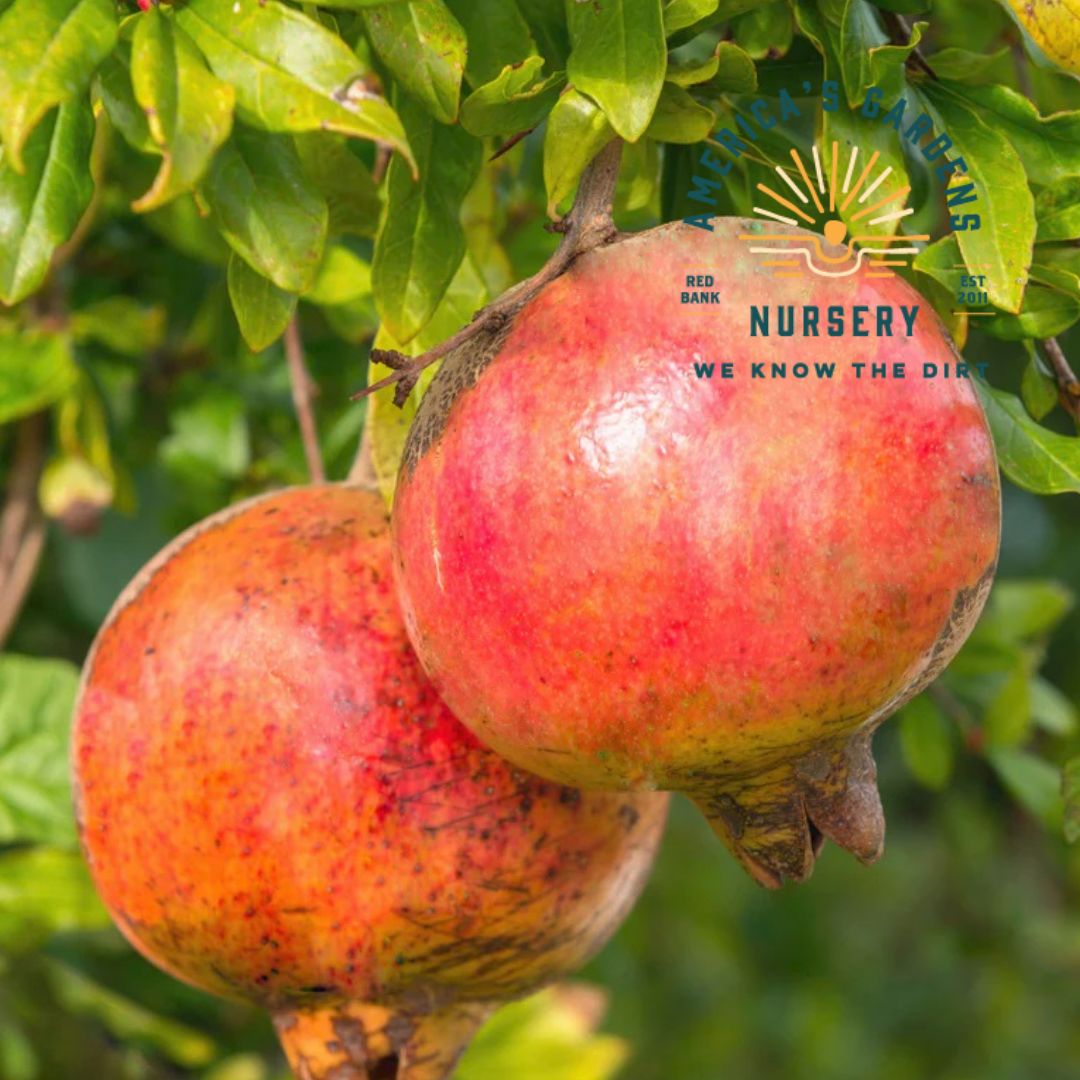





Product page > Variant picker block.The Salavatski Russian pomegranate is among the hardiest of pomegranate cultivars. It is able to tolerate temperatures down to 10 degrees Fahrenheit. Salavatski is one of the few pomegranates known as a tweener, so called for its semi-soft seeds. You can use these in salads for a nice crispy sweet surprise. Very cold hardy and very productive, performing well in zone 7 (Chattanooga) with some rumored success in protected areas in zone 6. Plus they produce an abundance of beautiful bright orange flowers over an extended period of time during the spring. Both the flowers and the fruit are produced at a very young age. Exceptionally heat tolerant. Salavatski is a self-fertile variety, which means it doesn't require a cross-pollinator.
These are tough trees, able to tolerate a wide variety of soil conditions, from clay to sand. Prefers full sun for best fruit production but will tolerate some light shade. Quite drought tolerant when established. Grows best in zones 7-9.
Salavatski (aka Russian) is a multi-stemmed deciduous shrub that grows up to 10 feet both tall and wide but is easy to keep smaller by pruning. It blooms with trumpet-shaped, orange-red flowers and produces orange-sized, globose, yellow to orange-red fruits. The fruit are large, deep pink seeded and have one of the best flavors of the southern pomegranates.
Unlike many fruit-bearing trees, the Salavatski pomegranate is deer resistant. Raw pomegranate isn't toxic to dogs, but it can make them sick.
Plant size and shape may differ from what is pictured.
For mail orders: Plants may go through shock during shipping. Upon arrival, take the plant out and water it thoroughly. If you are not satisfied with your purchase, please notify us via email at sales@amgardens.com and include a photo(s) within 24 hours of plant arrival.
For in store purchases: If you are not satisfied with your purchase, please call us at 423-870-5000 or return the plant in its original pot/condition within 3 days. Trees and shrubs have a 1 year warranty (exceptions may apply), but we highly encourage you to give us a call or email if you notice issues with your plant. We'd love to help you figure out what's wrong and save your plant!
Orders are shipped on Wednesdays and Thursdays; if your order is placed on a Wednesday, it may not ship until the following Wednesday. During peak season there may be delays in shipping. If it is too hot or cold, we suggest ordering during milder months to ensure plants arrive in best condition.